Altered gut microbiome in a mouse model of Gulf War Illness causes neuroinflammation and intestinal injury via leaky gut and TLR4 activation
- PMID: 28328972
- PMCID: PMC5362211
- DOI: 10.1371/journal.pone.0172914
Altered gut microbiome in a mouse model of Gulf War Illness causes neuroinflammation and intestinal injury via leaky gut and TLR4 activation
Abstract
Many of the symptoms of Gulf War Illness (GWI) that include neurological abnormalities, neuroinflammation, chronic fatigue and gastrointestinal disturbances have been traced to Gulf War chemical exposure. Though the association and subsequent evidences are strong, the mechanisms that connect exposure to intestinal and neurological abnormalities remain unclear. Using an established rodent model of Gulf War Illness, we show that chemical exposure caused significant dysbiosis in the gut that included increased abundance of phylum Firmicutes and Tenericutes, and decreased abundance of Bacteroidetes. Several gram negative bacterial genera were enriched in the GWI-model that included Allobaculum sp. Altered microbiome caused significant decrease in tight junction protein Occludin with a concomitant increase in Claudin-2, a signature of a leaky gut. Resultant leaching of gut caused portal endotoxemia that led to upregulation of toll like receptor 4 (TLR4) activation in the small intestine and the brain. TLR4 knock out mice and mice that had gut decontamination showed significant decrease in tyrosine nitration and inflammatory mediators IL1β and MCP-1 in both the small intestine and frontal cortex. These events signified that gut dysbiosis with simultaneous leaky gut and systemic endotoxemia-induced TLR4 activation contributes to GW chemical-induced neuroinflammation and gastrointestinal disturbances.
Conflict of interest statement
Figures
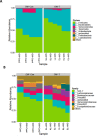
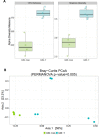



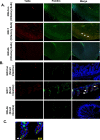


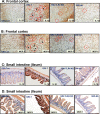
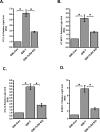
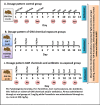
References
-
- Gulf War and Health: Volume 8: Update of Health Effects of Serving in the Gulf War. Washington DC: 2010 by the National Academy of Sciences; 2010.
-
- Chronic Multisymptom Illness in Gulf War Veterans: Case Definitions Reexamined. Washington DC: 2014 by the National Academy of Sciences; 2014. - PubMed
-
- Abdullah L, Evans JE, Bishop A, Reed JM, Crynen G, Phillips J, et al. Lipidomic profiling of phosphocholine-containing brain lipids in mice with sensorimotor deficits and anxiety-like features after exposure to Gulf War agents. Neuromolecular medicine. 2012;14(4):349–61. Epub 2012/07/17. 10.1007/s12017-012-8192-z - DOI - PubMed
MeSH terms
Substances
Grants and funding
LinkOut - more resources
Full Text Sources
Other Literature Sources
Molecular Biology Databases
Miscellaneous

